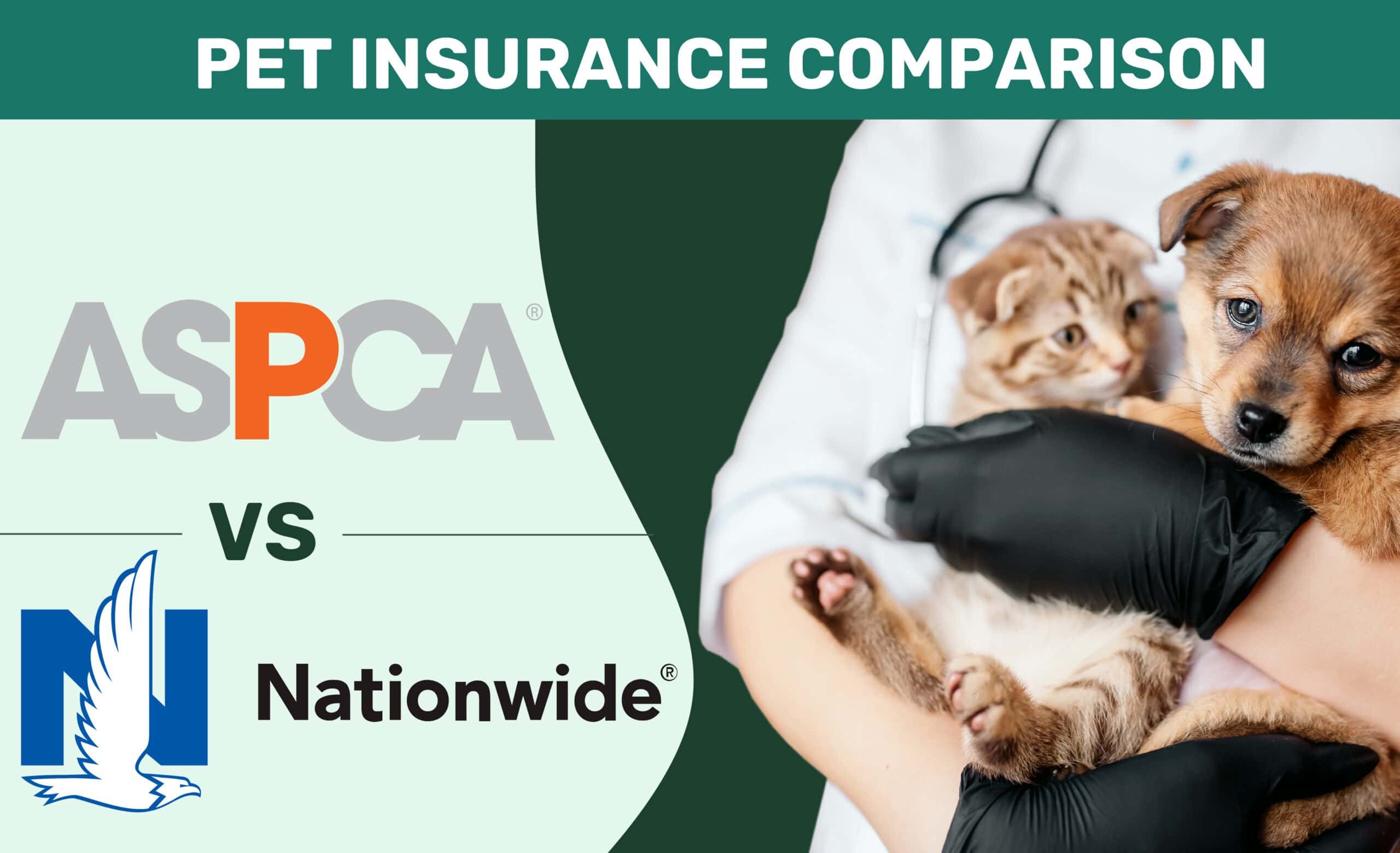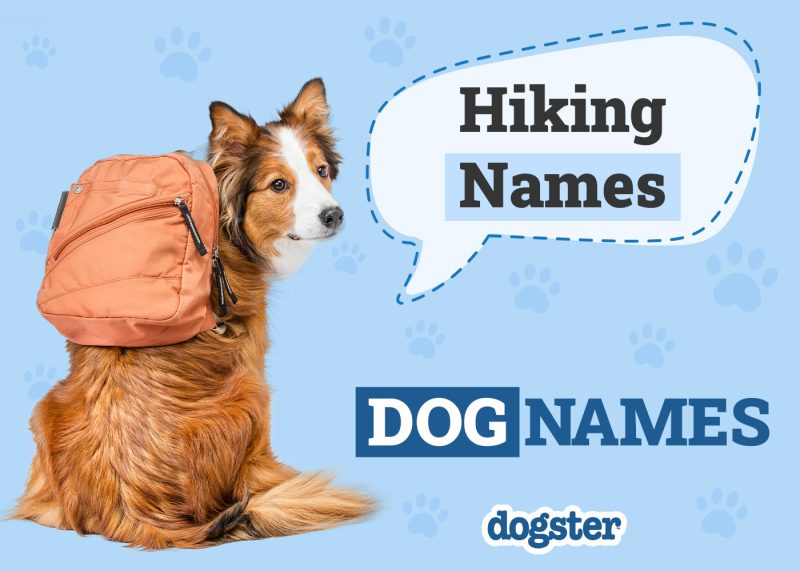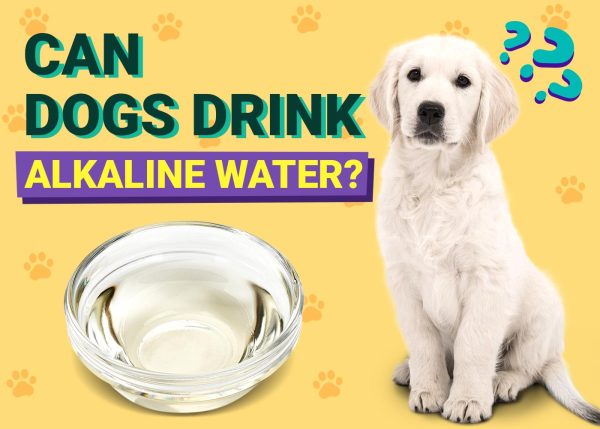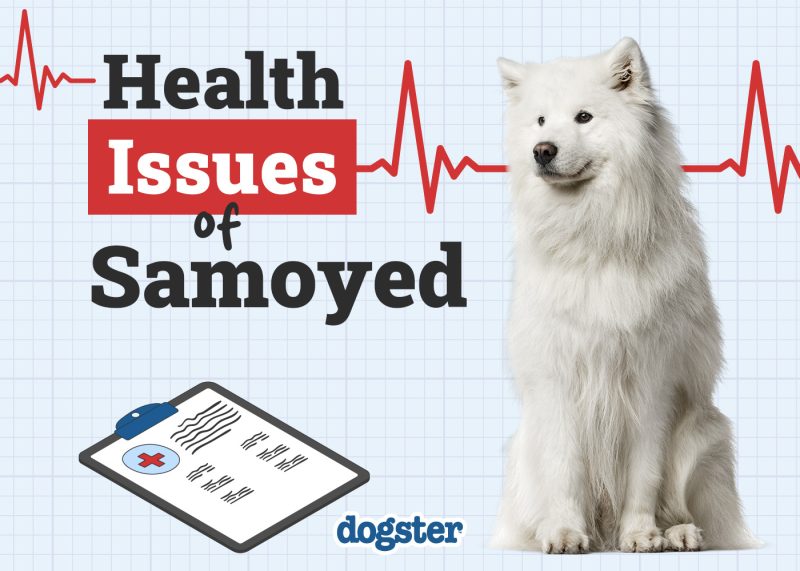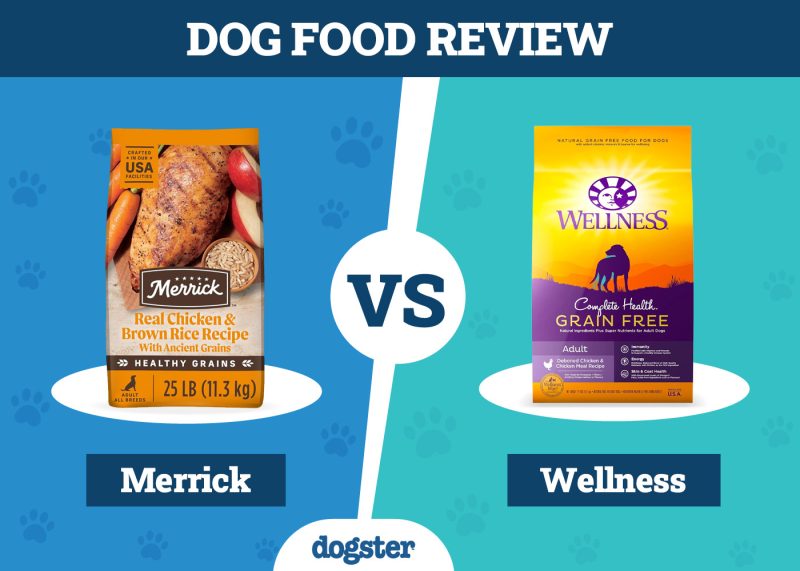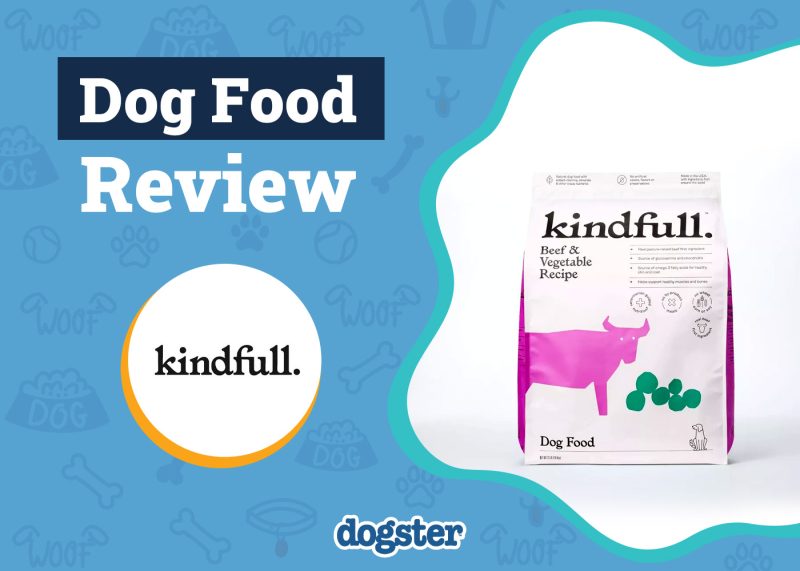Both ASPCA and Nationwide are reputable names in the pet insurance world. They offer comparable plans that can help pet owners save significant costs. When comparing these two companies, you’ll notice that they excel in different fields. So, it’s important to examine each one to see which will be best for you.
We’ll go over the types of plans, deductibles, and reimbursement options that each company offers. If you’re still having difficulty choosing a plan, make sure to look through their additional perks to help you decide.
| Company Name | ASPCA | Nationwide |
| Pets Covered | Cat, dog, horse | Bird, cat, dog, exotic pets |
| Types of Plans | Complete coverage, accident-only coverage | Whole pet, major medical, pet wellness |
| Deductibles | $100, $250, $500 | $100, $250, $500 |
| Reimbursement | 70%, 80%, 90% | 50%, 70%, |
| Additional Perks | Preventative care add-on, 10% multiple pet discount, 30-day money back guarantee | Wellness care add-on, 5% multiple pet discount, 10-day money back guarantee, 24/7 veterinarian line |
Brief Overview of ASPCA

- Customizable plans
- Offers coverage for illnesses previously cured or symptom-free for 180 days
- Offers accident-only plans
- 30-day reimbursement period
- Wellness coverage is only an add-on
Crum & Forster Pet Insurance Group is the insurance company that provides ASPCA Pet Health Insurance. ASPCA offers pet insurance for cats, dogs and horses. With ASPCA insurance, you can take your pet to any veterinarian in the United States and Canada and receive reimbursements.
After you pay your vet bill, you’ll submit a claim to ASPCA either only or by mail or fax. Then, ASPCA will either directly deposit your reimbursement to your bank account or mail a check.
ASPCA values the customer service experience. Its claims process is simple and straightforward, and you can expect to receive excellent customer service from their trained representatives. ASPCA also offers a 30-day money back guarantee where you can receive a full refund as long as expenses haven’t been applied to your deductible.
Brief Overview of Nationwide

- Offers coverage for exotic pets
- Wide variety of plans
- 24/7 veterinary line
- Plans aren’t very customizable
- Premiums are relatively expensive
Nationwide Pet Insurance offers coverage for all kinds of pets, including birds, cats, dogs, and exotic pets. With Nationwide Pet Insurance, you can visit any vet in the United States, so you can still keep your current veterinarian. You can also file claims for services your pet has received in other countries.
Nationwide has a simple claims process. Once you pay your vet bill, you can submit a claim by fax, mail, email, or online. The process is pretty quick as long as you submit your information correctly.
You’ll also find a lot more options and variety for plans. So, you’ll be able to find a plan that matches your pet’s individual needs.
Other Top Rated Pet Insurance Companies
ASPCA vs. Nationwide: Plans Available
Both ASPCA and Nationwide offer plans that cover medical expenses, accidents, and preventative and wellness care. ASPCA excels in customizable plans, while Nationwide excels in providing coverage for all kinds of pets.
| Company | Sample Monthly Cost for Dogs | Sample Monthly Cost for Cats | Learn More |
| ASPCA | $50 | $22 | Click to Get Quote |
| Nationwide | $61 | $28 | Click to Get Quote |
ASPCA
ASPCA has two main plans:
- Complete Coverage
- Accident-Only Coverage
Complete Coverage encompasses major and minor illnesses, such as arthritis, cancer, ear infections, and urinary tract infections. It also covers hereditary conditions, including heart disease, eye disorders, and hip dysplasia. You can also get reimbursed for accidents, alternative therapies, prescription medication and food, microchip implantation, and treating behavioral issues.
ASPCA also offers a wellness add-on that covers annual wellness exams, vaccines, and other preventative services. If your pet is relatively healthy, you can opt to purchase an accident-only plan to help with costs of sudden incidents and emergencies.
Nationwide
Nationwide has three types of plans:
- Accident
- Illness
- Wellness
The Accident plan offers complete coverage of accidents, such as broken bones or poisoning. The Illness plan allows reimbursements for illnesses like ear infections, allergies, and cancer.
The Wellness plan covers two physical exams per year, flea and tick prevention, vaccinations, and several other services. Pet Wellness plans are only available in certain states.
ASPCA vs. Nationwide: Reimbursements and Deductibles
One of the most significant arenas where ASPCA and Nationwide differs is reimbursements and deductibles.
ASPCA
| % of Medical Expenses | Annual Deductible | Maximum Coverage |
| 70% | $100 | $3,000 |
| 80% | $250 | $4,000 |
| 90% | $500 | $5,000 |
| $7,000 | ||
| $10,000 |
ASPCA allows you decide your annual deductible amount at $100, $250, or $500. You can also select from three different reimbursement percentages, and along with reimbursements and deductibles, you can select your annual limit. While the claims process is pretty easy to complete, it can take up to 30 days for the claim to process your reimbursement.
Nationwide
| % of Medical Expenses | Annual Deductible | Maximum Coverage |
| 50% | $100 | $10,000 |
| 70% | $250 | $10,000 |
| 90% | $500 | $10,000 |
Nationwide has a standard deductible of $250, but it can go lower or higher. There are two different types of reimbursement options. The first is a reimbursement of a percentage of your vet bill. The other is payments on a benefits schedule. The Whole Pet plan offers reimbursement by percentage, and the Major Medical plan reimburses based on a benefits schedule. The reimbursement percentage options that are available are 50%, 70%, and 90%
ASPCA vs. Nationwide: Additional Perks
You can receive an extensive amount of coverage from both ASPCA and Nationwide Plans. Here are some additional perks that differentiates them from each other.
ASPCA
ASPCA offers 10% off for any additional pets. While the plans don’t cover pre-existing conditions, your pets can receive coverage if they’ve been cured or symptom-free for more than 180 days. ASPCA also allows more pets to receive coverage. It doesn’t have an age limit, so older pets can still enroll in a plan.
Nationwide
Nationwide offers a 5% discount for additional pets. The discount increases to 10% with the fourth pet. Policyholders also get access to Nationwide’s 24/7 veterinarian helpline, which connects you to a vet for consultations that can save you a visit to the vet’s office.
Company Verdict: Which One Has the Edge?
Customer Service
- Edge:Nationwide
ASPCA’s customer service line is available from 8 a.m. to 8 p.m. EST on weekdays. Nationwide is available Monday through Friday from 5 a.m. to 7 p.m. PST and on Saturdays from 7 a.m. to 3:30 p.m. PST.
On top of phone support, Nationwide has a strong social media presence, and it also offers a veterinary consultation line that operates 24/7. This company also tends to give reimbursements more quickly than ASPCA.
Price of Plans
- Edge:ASPCA
You’ll find more flexibility in your plan prices with ASPCA because there are more options for reimbursement percentages, deductible amounts, and annual limits. ASPCA’s quote finder also allows you to play around with these options so that you can find an accurate quote. Nationwide plans are more static, and the premiums tend to be pricier than its competitors.
Areas of Coverage
- Edge: ASPCA
While neither company covers pre-existing conditions, ASPCA is a little more flexible with its chronic condition coverage. If you can provide medical records that prove that your pet has been completely cured of an illness or has been symptom-free for at least 180 days, your pet can receive coverage for that illness.
ASPCA also doesn’t have an age limit for pets that can receive coverage. Nationwide doesn’t offer new policies to pets that are over 10 years old for its Major Medical and Feline Select plans.
Perks
- Edge:ASPCA
Nationwide offers a veterinarian line for its policyholders. However, ASPCA has more cost-saving perks. First, it offers a 10% discount for any additional pets, so it’s great for multi-pet households. Nationwide offers a 10% discount starting with your fourth pet.
Also, ASPCA has a wellness add-on that doesn’t have a wait period, while Nationwide has a 24-hour wait period. All pets are eligible for coverage under ASPCA, but Nationwide has more eligibility restrictions, particularly with age.
Summary

|

|
|
|---|---|---|
| ASPCA | Nationwide | |
| Our Rating |
Our Rating:
|
Our Rating:
|
| Preventative Care Options |
Preventative Care Options:
 |
Preventative Care Options:
 |
| Spaying/Neutering |
Spaying/Neutering:
 |
Spaying/Neutering:
 |
| Multi-Pet Discount |
Multi-Pet Discount:
 |
Multi-Pet Discount:
 |
| Covers Vaccines |
Covers Vaccines:
 |
Covers Vaccines:
 |
Overall, ASPCA is the better pet insurance company. It enables more pets to receive coverage, and its enrollment process allows you to make a plan that’s heavily customized to your unique pet. It also has additional perks that can help you save on costs.
However, one field where Nationwide comes on top is the coverage for exotic pets. Outside of cats and dogs, ASPCA only offers plans for horses.
So, if you’re looking for coverage for exotic pets, Nationwide would be the pet insurance company for you. If you’re looking for coverage for cats, dogs, or horses, ASPCA will do a better job of covering your pet’s health and wellness throughout its entire lifetime.
See also:
